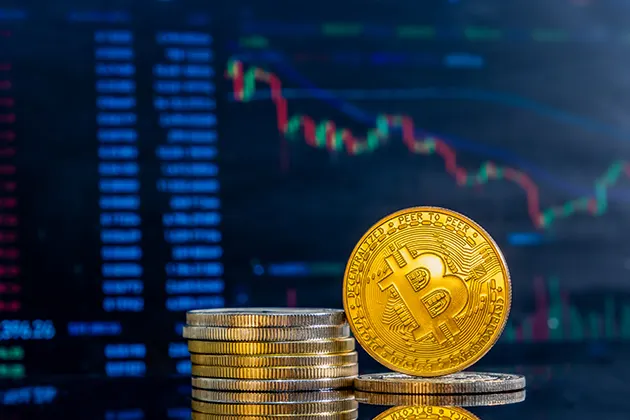Solar Innovations and Trends
Your source for the latest in solar technology and energy solutions.
Riding the Digital Wave: Surfing Through Virtual Currency Trends
Ride the digital wave and discover the latest trends in virtual currency! Join us to surf through insights that could boost your crypto game!
Understanding Cryptocurrency: A Beginner's Guide to Digital Currency
Understanding Cryptocurrency can seem daunting for beginners, but breaking it down into digestible parts can make the learning process much easier. At its core, cryptocurrency is a type of digital currency that uses cryptography for secure transactions, control of new units, and the verification of asset transfers. Unlike traditional currencies, cryptocurrencies operate on decentralized networks based on blockchain technology, which is a public ledger of all transactions that ever took place. This decentralization ensures that no single entity or government has control over the currency, providing users with greater security and privacy.
To get started in the world of cryptocurrency, it’s important to understand key concepts such as wallets, exchanges, and different types of coins. A cryptocurrency wallet is essential for storing your digital assets securely, and it can be either hardware-based or software-based. Additionally, exchanges are platforms where you can buy, sell, or trade cryptocurrencies. Here’s a brief list of types of cryptocurrencies you may encounter:
- Bitcoin (BTC)
- Ethereum (ETH)
- Litecoin (LTC)
- Ripple (XRP)
As you explore the realm of digital currencies, always remember to do your research and stay informed about market trends and regulations.

Counter-Strike is a highly popular series of first-person shooter games, known for its competitive gameplay and team-based mechanics. Players can join various game modes, including bomb defusal and hostage rescue, creating intense scenarios that require strategy and skill. For those looking to enhance their gaming experience, using a csgoroll promo code can provide valuable in-game rewards and benefits.
What are Altcoins? Exploring the Rise of Alternative Cryptocurrencies
Altcoins, short for alternative coins, refer to all cryptocurrencies other than Bitcoin. Since its inception in 2009, Bitcoin has dominated the cryptocurrency market, paving the way for thousands of other digital currencies. As of now, there are over 20,000 altcoins in existence, each with unique features, use cases, and underlying technologies. Some of the most popular altcoins include Ethereum, known for its smart contracts; Ripple, which focuses on facilitating international money transfers; and Litecoin, designed to offer faster transaction times. The rise of altcoins has opened the door for investors and developers to explore diverse opportunities beyond Bitcoin.
The rise of altcoins is largely fueled by the demand for innovative solutions in various sectors such as finance, supply chain, and healthcare. Many altcoins are built on different blockchain protocols, enabling functionalities such as decentralized finance (DeFi) and non-fungible tokens (NFTs). As the cryptocurrency ecosystem matures, the significance of altcoins becomes increasingly apparent, offering users new avenues for investment and utility. However, it is essential to approach altcoin investments with caution, as they can be highly volatile and pose various risks. In conclusion, understanding altcoins is crucial for anyone looking to engage with the cryptocurrency market, as they represent a significant portion of the digital asset landscape.
How Blockchain Technology is Revolutionizing Financial Transactions
Blockchain technology is fundamentally changing the landscape of financial transactions by introducing a decentralized and transparent system. Traditional financial systems often rely on intermediaries, such as banks, that can slow down transactions and introduce additional fees. In contrast, blockchain enables peer-to-peer transactions that occur almost instantly, reducing costs and increasing efficiency. By utilizing cryptographic techniques, each transaction is securely recorded on a public ledger, making it nearly impossible to manipulate or forge. This level of security fosters trust among users and has paved the way for innovative financial solutions such as cryptocurrencies and smart contracts.
Moreover, the adoption of blockchain technology has the potential to increase financial inclusion worldwide. Millions of people in developing regions lack access to traditional banking services, but with blockchain, they can engage in the global economy using just a mobile device. Additionally, blockchain can enhance the transparency of financial transactions, thereby reducing fraud and corruption. As more companies and individuals recognize the benefits of this technology, we can expect to see a significant shift in how financial transactions are conducted, ultimately leading to a more equitable and efficient financial system.